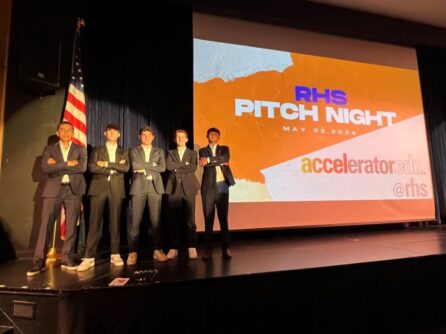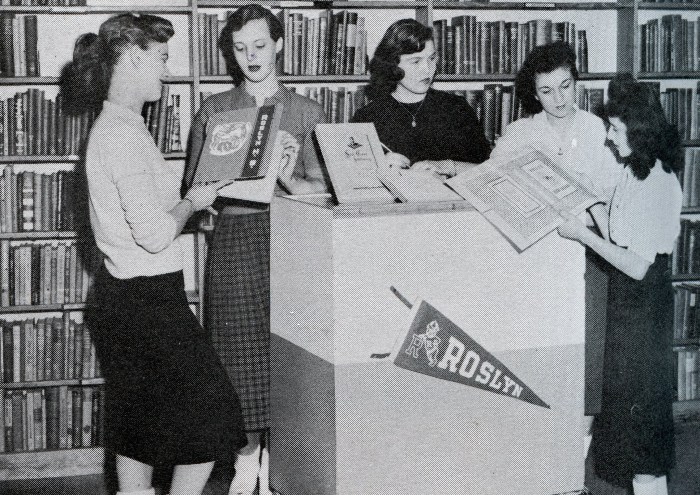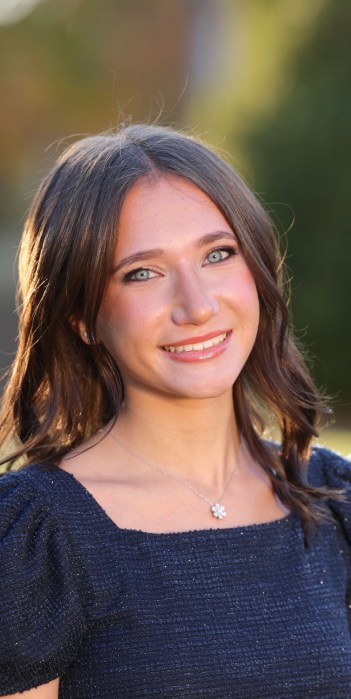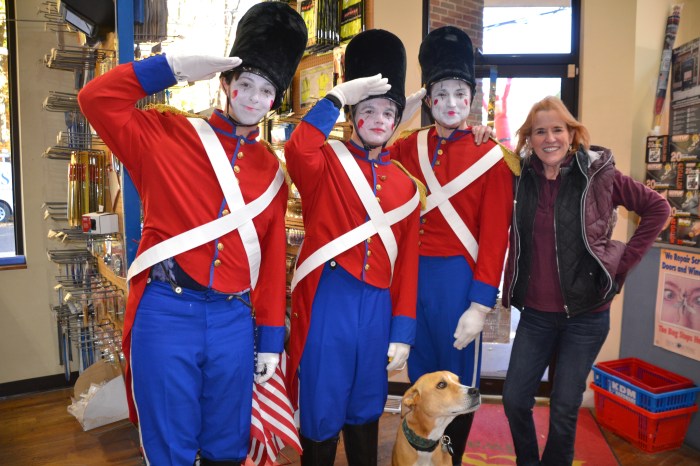The annual “Shark Tank” showcase is a popular affair at Roslyn High School. For the past eight months, the students of RHS’ Incubator and Accelerator classes have been honing their business skills, culminating in product pitches to a group of judges, in the style of the television show, Shark Tank.
Jennifer DiPietro, one of the program’s teachers, helps her students develop their ideas and nurtures their concepts from start to finish each year. “Our students enroll, and they are put into teams where they work all year at making a startup company. They do everything from the ideation of the concepts to competitive analysis, the branding, they do the financials. At the end of the year, it culminates with a Shark Tank competition, which we do live.”
This year’s competition had an in-person audience of over 250 people, and watching the live stream of the event were 300 more.
The Incubator Program was the concept that started it all. The class is open to sophomores juniors, and seniors. Notably, there are no prerequisites to join. “It’s a very inclusive environment purposefully,” said DiPietro. “That was something I felt really passionate about because every skill set is something that you need in a team. Just because you’re an AP student with a great SAT score doesn’t mean you’re great at making a logo, right? So it’s really learning how to value each other as well. And see value in what you contribute to a team.”
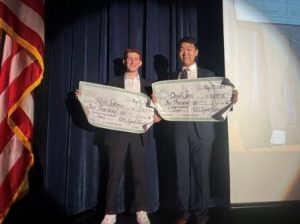
RHS has also established the Accelerator Program as a follow-up. “You create [your concept], you baby it, you figure out how it’s going to work in Incubator, and then in Accelerator is when you’re going to dive deeper and actually be making your prototypes and figuring out your customer buying process on the funnel and going much deeper into the business. The idea is that first you incubate [your business] and then you accelerate it,” explained DiPietro.
There were 15 teams in the Incubator class this year, five of which showcased their businesses to the “sharks.. The winning team included Sophie Glass, Josh Kaftol, Jordan Roth, Hannah Sur, and Benji Weinberger, alongside mentor Arthur Mosh. Their company, FurMetrics, invented a FitBit for dogs to better monitor their health and activity levels.
The Accelerator Program was a bit smaller, with four teams competing. This year’s winning Accelerator team was Spike, which included Logan Karnovsky, Jack Meyer, Alex Sadofsky, Blake Sohmer, and Justin Vishnick, with mentor Craig Kugel. Their product pitch was a wrap that goes on athletic cleats, to continue a team’s uniform onto their footwear. “They’re looking into patenting it, they went through the process with lawyers, they’ve talked to lots of organized travel teams to see what the interest level is. They’ve done a lot of really mature meetings, and they pitched it like champions,” said DiPietro.
Blake Sohmer was also presented with the Entrepreneurial Spirit Award by the Ignite Foundation, a foundation that was created by the community to support the Incubator and Accelerator classes. David Sun, whose team placed second with their business Selfless, was presented with the Lynchpin Award by the Foundation. Both young men received $1,000 scholarships as well.
DiPietro is optimistic about the continuation of the program. She feels the skillset students can learn from the process gives them a real head-start in their next chapter. “They learn communication and collaboration and creativity. They work with teams all year long, so they have to learn how to work with people who have different personality types, and come together and value what each different person brings to the table. They learn that they can’t do it all themselves, and that they need to learn how to come together and motivate each other and create the best product possible. They also learn communication skills, communicating appropriately with their peers, their teachers, as well as business professionals. And they learn how to create and learn how to take risks and try it out. If it doesn’t work, we try again, try something different. So they really build their confidence and their presentation skills. They learn how to pitch and learn how to field questions and think on their feet. And all of that is transferable no matter what industry they go into.”



